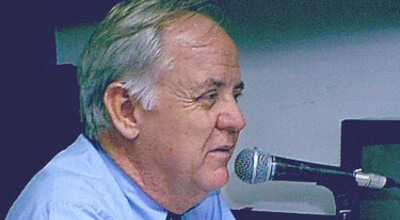Church-State Relations
Relations between Venezuela’s Protestants and Catholics have greatly improved since the earlier days of disruptions and lawsuits.
“In the 1980s and ’90s, the Committee for Relations Between Churches and Synagogues in Venezuela kept people coming together around a meal, just to be with each other and talk,” Olson explained. “[This] had a great impact on the religious leadership. There was no theological position to be argued.”
Arguments have occurred between the Catholic Church and the Chavez government, sometimes with violent results.
In July 2001 a pipe bomb exploded at the Church of San Francisco in Caracas and slightly injured a young woman. Later the same week police disarmed similar bombs at the Cathedral of Caracas and the Church of the Santa Capilla.
At the time, Catholic officials were embroiled in a bitter public feud with Chavez. The fight began over deep cuts in government subsidies to Catholic schools and hospitals.
When Chavez took office these grants totaled nearly $500 million per year. He slashed them by 80 percent, on the grounds that the state and not the church should deliver these services to its citizens.
Catholic officials responded by pointing out the deficiencies in the state’s social programs and questioning the soundness of Chavez’s political agenda. The president reacted by accusing the bishops of plotting his overthrow. The bombings followed his accusation.
Because no group claimed responsibility for the attacks the affair remains a mystery. Relations between Chavez and the Catholic Church remain tense, but for many reasons.
“Catholicism is a worldwide geopolitical body,” Olson notes. “Its interests don’t always mesh with those of the Venezuelan state.” As for relations between the state and Protestants, Olson says evangelicals and the Chavez government have a “formal and respectful” relationship.
“Our [Evangelical Council of Venezuela] lawyers are treated well when they meet with government officials,” he says. “They are talking now of developing a protocol to know who to invite to official functions.”
According to rumors, some evangelicals are seeking a closer alliance with Chavez and his “Bolivarian Revolution”¥the name for the political reform movement he is promoting in Latin America. Some evangelical churches have added the word “Bolivarian” to their official name, sparking speculation that Chavez is granting special privileges to them in return for their political support.
Olson does not believe the speculation and pointed out that “nowadays, anybody registering [under the 2001 constitution] must use ‘Bolivarian’ in the legal name or statute of any public organization in Venezuela.”
“That does not mean you necessarily support the government or its policies,” he says. “You are simply complying with the law. Yet people take a statement and [apply] their own way of interpreting things.”
Another rumor circulating is that the Chavez government is planning to expel foreign missionaries¥at least those of U.S. citizenship. In a similar move a few years ago, the government passed a resolution denying missionaries access to indigenous areas.
In February 2006, Florida-based New Tribes Mission pulled its ministry personnel out of jungle bases here, ending more than 50 years of ministry by the group. Some missionaries remain in the country, but they no longer can reside in tribal areas.
The action was in part a backlash to the suggestion made on U.S. television by evangelist Pat Robertson that the American government should assassinate Chavez as a way to stop communism and Muslim extremism from infiltrating Latin America.
After that, Chavez’s chief of religious affairs ceased granting visas to U.S. missionaries. He later told Reuters news agency that although the government had been preparing the move for some time “these declarations have made us speed things up.”
The campaign to stop evangelical missionaries from reaching Venezuela’s native peoples has indeed been a long-term effort.
“In the 1960s and ’70s, secular anthropologists and members of the Opus Dei brought charges in Congress against New Tribes and other evangelical missions working with tribal peoples,” recalls Zabdiel Arenas, a Venezuelan whose parents were missionaries working with indigenous groups in the Orinoco basin at the time. “They said missionaries were enslaving the Indians, destroying their way of life, mining gold and diamonds. None of this was true, of course.”
The arguments did not succeed, but Arenas points out that the government used them again against New Tribes.
“It’s an odd situation,” Olson adds. “The government sent in the military, but they don’t know how to speak tribal languages as the missionaries did. We need to pray for these [indigenous] people to take the leadership. They have to run their own ship.”







Leave a Comment
You must be logged in to post a comment.